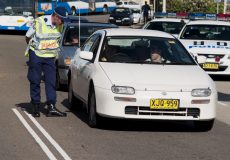If you are found guilty (or plead guilty) to a drug-related offence, depending upon the circumstances of the offence, and your previous criminal history, the Court may impose a heavy fine and imprisonment.
Our Team

Gavin Hanrahan
Managing Partner

Saquib Shadman
Lawyer

Sally Elphick
Lawyer

Alex Crisp
Lawyer

Jessica Tuttiett
Paralegal
Drug Offence Lawyers in NSW
Our Criminal Law Team can assist you with matters related to drug offences, we have the experience and expertise necessary to ensure you receive the best possible outcome.
We’ve been defending the people of Newcastle, Lake Macquarie, Central Coast and the Hunter region since 1969 and have helped our clients to achieve the best possible outcomes in all Criminal Law matters.
We are used to dealing with the Police and know all the ‘ins and outs’ of the Courts and Justice system.
If you have been charged with a drug-related offence, contact our Criminal Law Team today to book a teleconference or appointment. We’ll fight vigorously to protect your freedom and rights.
Drug Offences
A drug offence is an offence that involves a prohibited drug. If you have been charged with a drug-related offence, you should immediately seek legal advice.
See Also: Drug Driving Lawyers
The quantity of the prohibited drug will determine what offence you are charged with and the penalty that may be imposed.
Prohibited drugs include but are not limited to cannabis, cocaine, MDMA, GHB and a range other lesser known substances. We have listed some of the most common drug-related offences in NSW below.
What is the ‘Possess Prohibited Drug’ offence and what are the penalties?
It is an offence under the Drugs Misuse and Trafficking Act to possess a prohibited Drug. The offence carries a penalty of a maximum fine of $2,200 and/or imprisonment for 2 years.
The matter is a summary offence and will be presided upon in the Local Court.
The prosecution will have to prove beyond reasonable doubt that you had possession of the prohibited drug prior to the Court recording a conviction. The Court will also need to be aware that you had knowledge of the drug. A common defence often arise in a shared environment where the Prosecution cannot prove the sole possession of the drug by one person.
What is the ‘Supply Prohibited Drug’ offence and what are the penalties?
It is an offence under the Drug Misuse and Trafficking Act for a person who knowingly takes part in the supply of a prohibited drug. The maximum penalty for supply prohibited drug is a fine of up to $220,000 and/or imprisonment for 15 years.
If the matter is presided upon in the Local Court without election for the matter to be heard in the District Court, the maximum penalty is 2 years imprisonment.
Within the Drug Misuse and Trafficking Act, there is a schedule which details the indictable quality for each type of drug. When the possession of drug exceeds the indictable quantity as noted within the schedule, the matter becomes a strictly indictable matter which will be finalised before the District Court. In all other matters, the proceedings will be dealt with in the Local Court unless an election is made.
When an individual has in their possession of a quantity of drugs, if the weight of the drug exceeds a threshold level stated within the Act (a trafficable quantity), you may be charged with “deemed supply” where it is deemed that the possession of such a quantity of drugs would not, in the normal circumstances, be for personal use only. The onus then falls back on the defence to prove that the possession was for personal use only and not for supply.
To be convicted, the police must prove, beyond reasonable doubt, that you knowingly took part in the supply of a prohibited drug. Supply includes to sell and distribute, and also includes agreeing to supply, or offering to supply, or keeping or having in possession for supply, or sending, forwarding, delivering or receiving for supply, or authorising, directing, causing, suffering, permitting or attempting any of those acts or things.
If you are found guilty, or plead guilty, to Drug related matters, then, depending upon the circumstances of the offence and your previous criminal history, the Court may impose the following sentences (click here).
What is the ‘Social Supply’ offence and what are the penalties?
“Social Supply” is a relatively new term (coined in R v Wilhelm [2010] NSWSC 378) that is used to describe the supply of a prohibited drug in a social situation where the supplier has no consideration of profit and everyone involved is an adult who consents to the drug use. In these situations the supplier only provides access to the drug. Common examples of social supply include:
- A person sharing a couple of ecstasy pills with friends at a music festival
- A person passing around a cannabis joint at a house party
- A person inviting someone back to their residence to take cocaine after a night out
In the R v Wilhelm case, in reference to “social supply”, it was concluded that:
“on the scale of offences of supply it must be on the very lowest rung”.
What is the ‘Use of a Prohibited Drug’ offence and what are the penalties?
It is an offence under the Drug Misuse and Trafficking Act for a person to self-administer a prohibited drug. The maximum penalty for using a prohibited drug is a fine of up to $2,200 and/or imprisonment for 2 years.
There are various ways to use (self-administer) drugs, i.e. injecting, smoking, swallowing and snorting. It doesn’t matter how you consume the drug, it only matters that the drug is in your system.
What is the ‘Manufacture a Prohibited Drug’ offence and what are the penalties?
It is an offence under the Drug Misuse and Trafficking Act for a person to manufacture a prohibited drug. The maximum penalty for manufacturing a prohibited drug is a fine of up to $220,000 and/or imprisonment for 15 years.
In NSW, the penalty imposed and the Court the matter is heard in, is determined by the type and quantity of drug manufactured. Where the amount of prohibited drug manufactured exceeds the indictable quantity (call us to discuss), the matter is strictly indictable, which means it will be heard in the District Court, not the Local Court.
To be charged with this offence, the police must prove that you directly manufactured or produced a prohibited drug or knowingly took part in the manufacture or production of a prohibited drug, i.e. there was more than one individual taking part.
What is the ‘Cultivate a Prohibited Plant’ offence and what are the penalties?
We have an entire page dedicated to this offence. Click here: Cultivate a Prohibited Plant
Is it an offence to supply, manufacture or advertise synthetic substances?
Yes. A synthetic drug is a drug that has been manufactured with constituents (similar to ingredients) that produce similar effects to prohibited drugs.
In October 2013, amendments were made to the Drug Misuse and Trafficking Act that provided that if the synthetic drug (a psychoactive substance) has the capacity to produce a psychoactive effect it is an offence to supply, manufacture or advertise such substances. The maximum penalty for supplying, manufacturing or advertising a psychoactive substance is a fine of up to $2,200 and/or imprisonment for 2 years.
Related Services
-
 Drug Driving Lawyers
Drug Driving Lawyers
-
 Criminal Law
Criminal Law
-
 Extortion and Blackmail
Extortion and Blackmail
-
 Centrelink Fraud
Centrelink Fraud
-
 Firearm Offences
Firearm Offences
-
 Hinder an Investigation
Hinder an Investigation
-
 AVOs Apprehended Violence Orders
AVOs Apprehended Violence Orders
-
 Computer Offences and Cybercrime
Computer Offences and Cybercrime
-
 Affray and Public Violence
Affray and Public Violence
-
 Malicious Damage to Property
Malicious Damage to Property
-
 Murder and Manslaughter
Murder and Manslaughter
-
 Assault
Assault
-
 Stalking and Intimidation
Stalking and Intimidation
-
 Break and Enter
Break and Enter
-
 Larceny and Stealing
Larceny and Stealing
-
 Penalty Notices
Penalty Notices
-
 Drink Driving Lawyers
Drink Driving Lawyers
-
 Perjury and False Accusations
Perjury and False Accusations
-
 Misappropriation of Assets and Funds
Misappropriation of Assets and Funds
-
 Bankruptcy Crime
Bankruptcy Crime
-
 Tax Fraud
Tax Fraud
-
 Identity Crime
Identity Crime
-
 Environmental Crime
Environmental Crime
-
 Bribery
Bribery
-
 Insider Trading
Insider Trading
-
 Money Laundering
Money Laundering
-
 Fraud & Cyber Fraud
Fraud & Cyber Fraud
-
 Sex Crimes and Sexual Offences
Sex Crimes and Sexual Offences
-
 Corporate Crime
Corporate Crime
Helpful Links
If you are looking for further information on drug offences, we hope the following links will help.
Get help now
We respond in 24 hours or less!
"*" indicates required fields
Articles
-
 10/04/2025 by Saquib Shadman What to do if you’re arrested in NSW
10/04/2025 by Saquib Shadman What to do if you’re arrested in NSW -

-

-
 10/07/2024 by Gavin Hanrahan Know your rights when talking to the police
10/07/2024 by Gavin Hanrahan Know your rights when talking to the police -

-
 15/05/2018 by Gavin Hanrahan Cameras to detect mobile phone usage while driving from 1 July 2018
15/05/2018 by Gavin Hanrahan Cameras to detect mobile phone usage while driving from 1 July 2018 -
 30/11/2015 by Gavin Hanrahan Drug Offences: The difference between small, traffickable and indictable quantities
30/11/2015 by Gavin Hanrahan Drug Offences: The difference between small, traffickable and indictable quantities -
 16/02/2021 by Gavin Hanrahan Can You be Found Guilty With No Conviction Recorded?
16/02/2021 by Gavin Hanrahan Can You be Found Guilty With No Conviction Recorded? -
 26/04/2016 by Gavin Hanrahan Jury Duty - A Guide For Potential Jurors
26/04/2016 by Gavin Hanrahan Jury Duty - A Guide For Potential Jurors -
 01/07/2016 by Gavin Hanrahan Cyber harassment, cyber stalking and cyber bullying: the offences and penalties
01/07/2016 by Gavin Hanrahan Cyber harassment, cyber stalking and cyber bullying: the offences and penalties






 Liability limited by a scheme approved under Professional Standards Legislation
Liability limited by a scheme approved under Professional Standards Legislation